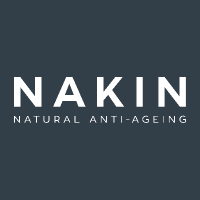How Probiotic Supplements Can Reduce Skin Inflammation

Probiotics are fast becoming known as having much more importance than just helping our gut. They are known to help our brain and many aspects of our systems, including our skin. It’s interesting to think that a probiotic supplement can do all this of, but they can because they work to bring the good bacteria back to our gut, and our gut health is linked to everything else. Even the National Library of Medicine have reported on how probiotic supplements can improve inflammatory states in the skin and treat conditions such as acne, rosacea, dermatitis, and sun damage.
Probiotic supplements may be the answer you’ve been searching for if you are looking for something extra for your skin. The gut-skin axis is a real thing, and research shows that taking probiotics can improve not only digestive health, but also skin health. In this posy, we’ll dive into the science behind probiotics and their impact on skin inflammation.
First, let’s define what we mean by probiotics. Probiotics are live microorganisms that, when consumed in adequate amounts, provide health benefits to the body. The most common types of probiotics are Lactobacillus and Bifidobacterium. These helpful bacteria can be found in certain foods, such as yogurt and sauerkraut, but can also be taken in supplement form.
So, how exactly do probiotics improve skin health? It all comes down to their anti-inflammatory effects. Inflammation is a natural response to injury or infection, but chronic inflammation can lead to a variety of health problems, including skin issues like acne, rosacea, and eczema. Probiotics have been shown to reduce inflammation by regulating the immune system and promoting the growth of healthy gut bacteria.
One study found that taking a probiotic supplement for 12 weeks resulted in a significant decrease in acne severity and inflammation markers in the blood. Another study found that a specific strain of probiotics, called Lactobacillus Rhamnosus, reduced skin inflammation in those with eczema.
In addition to reducing inflammation, probiotics may also improve skin hydration and barrier function. The skin’s barrier function is important for protecting against environmental stressors and maintaining moisture levels. Probiotics have been shown to strengthen the skin’s barrier function by promoting the production of ceramides, which are essential for maintaining skin hydration and preventing water loss.
While probiotics can certainly have a positive impact on skin health, it’s important to note that they should be used in conjunction with a healthy diet and lifestyle. Eating a balanced diet rich in fruits, vegetables, whole grains, and protein will provide your body with the nutrients it needs to maintain healthy skin. Additionally, avoiding smoking and excessive alcohol consumption can also improve skin health.
In summary, probiotics offer a promising solution for those struggling with skin inflammation. By reducing inflammation and promoting healthy gut bacteria, probiotics can improve skin health from the inside out. However, it’s important to remember that probiotics are just one part of the equation. A healthy diet and lifestyle are crucial for maintaining overall health, including skin health. Talk to your healthcare provider before taking probiotics to see if probiotics are right for you, and enjoy the benefits of clearer, healthier skin.
We hope that you found this post useful. At Nakin we are dedicated to helping skin look its best with our natural skincare range. Applying good natural face products like ours at Nakin is an easy way to assist in applying naturally occurring probiotics to our skin, as they are found naturally in plants, and our skincare is packed with plant ingredients. Find out more about us online.


Leave a comment